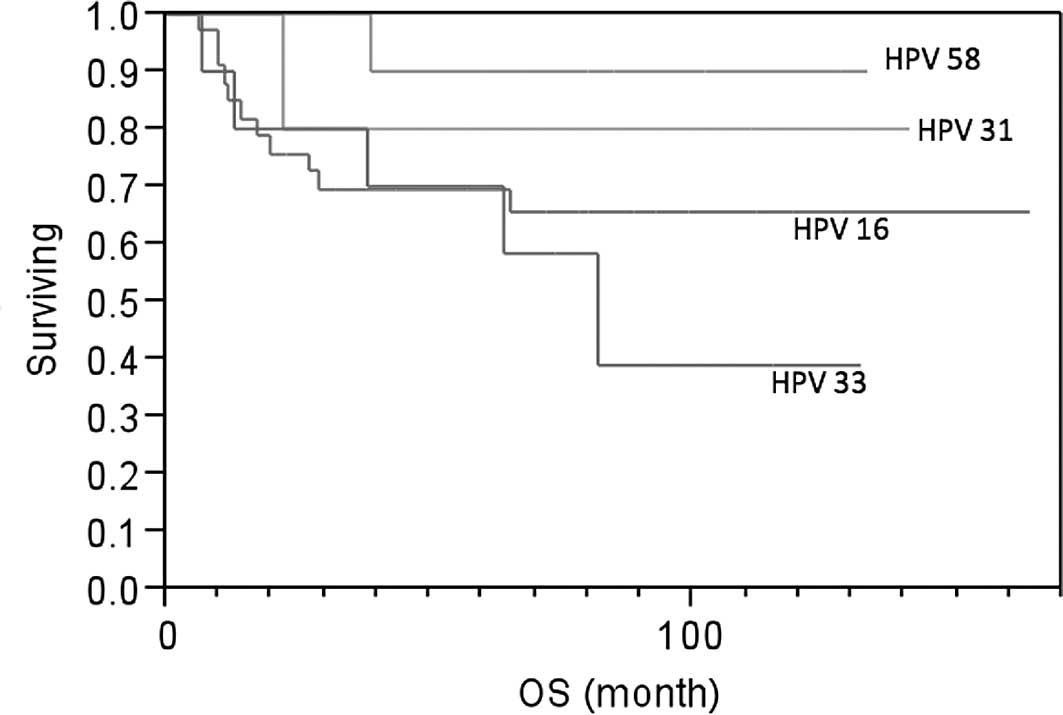Spandidos Publications style
Ferdousi J, Nagai Y, Asato T, Hirakawa M, Inamine M, Kudaka W, Kariya K and Aoki Y: Impact of human papillomavirus genotype on response to treatment and survival in patients receiving radiotherapy for squamous cell carcinoma of the cervix
. Exp Ther Med 1: 525-530, 2010.
APA
Ferdousi, J., Nagai, Y., Asato, T., Hirakawa, M., Inamine, M., Kudaka, W. ... Aoki, Y. (2010). Impact of human papillomavirus genotype on response to treatment and survival in patients receiving radiotherapy for squamous cell carcinoma of the cervix
. Experimental and Therapeutic Medicine, 1, 525-530. https://doi.org/10.3892/etm_00000083
MLA
Ferdousi, J., Nagai, Y., Asato, T., Hirakawa, M., Inamine, M., Kudaka, W., Kariya, K., Aoki, Y."Impact of human papillomavirus genotype on response to treatment and survival in patients receiving radiotherapy for squamous cell carcinoma of the cervix
". Experimental and Therapeutic Medicine 1.3 (2010): 525-530.
Chicago
Ferdousi, J., Nagai, Y., Asato, T., Hirakawa, M., Inamine, M., Kudaka, W., Kariya, K., Aoki, Y."Impact of human papillomavirus genotype on response to treatment and survival in patients receiving radiotherapy for squamous cell carcinoma of the cervix
". Experimental and Therapeutic Medicine 1, no. 3 (2010): 525-530. https://doi.org/10.3892/etm_00000083















